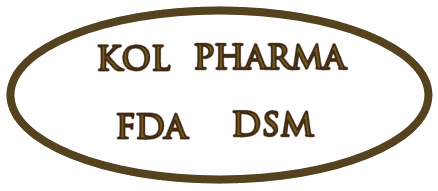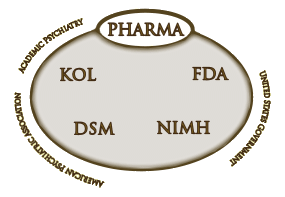Drug development for anxiety disorders: new roles for atypical antipsychotics
by Carson WH, Kitagawa H, Nemeroff CB
Psychopharmacology Bulletin 2004;38 Suppl 1:38-45.
Source: Global Product Development/Aripiprazole, Princeton Aripiprazole Unit, Otsuka America Pharmaceutical, Inc., in Princeton, NJ.
Abstract: Anxiety disorders are prevalent and frequently comorbid with depression. Rates of response and remission for anxiety disorders are low despite marked improvements in treatment in the past several decades. Antidepressants and anxiolytics remain the most frequently prescribed agents for anxiety disorders, but the numbers of prescriptions for novel forms of therapy, such as anticonvulsants and atypical antipsychotics are increasing. For the atypical antipsychotics, agonist activity at the 5-HT(1A) receptor has been hypothesized to translate into anxiolytic effects. A small, but growing, literature suggests that atypical antipsychotics are useful as augmentation therapy for treatment of refractory anxiety disorders. The next generation antipsychotic, aripiprazole, has a unique mechanism of action (ie, combined D(2) and 5-HT(1A) partial agonist and 5-HT(2A) antagonist) and improves depressive and depressive/anxiety symptoms in patients with schizophrenia. Further studies examining the effect of aripiprazole and other atypical antipsychotic drugs on depressive and anxiety symptoms in patients with refractory anxiety disorders are warranted.
Antipsychotics Increasingly Prescribed for Anxiety
Psychiatric News
by Jonathan Wolfe
September 2, 2011Researchers find a significant rise in antipsychotic prescriptions for patients diagnosed with anxiety disorders, despite limited studies on safety and efficacy of the medications for these disorders. Antipsychotic medications that have been approved for use in treating serious mental illnesses such as schizophrenia and bipolar disorder are increasingly being prescribed by office-based psychiatrists in an off-label use for patients with a range of common anxiety disorders…
“The dramatic increase in atypical antipsychotic use in anxiety disorders in the absence of FDA approval for these indications is surprising in view of the many medications for which there is both evidence of efficacy and FDA approval,” said Charles Nemeroff, M.D., Ph.D., chair of the Department of Psychiatry and Behavioral Sciences at the University of Miami’s Miller School of Medicine. “Considering the significant side-effect burden of atypical antipsychotics, and their cost, decisions of their use for non-FDA-approved indications, including anxiety disorders, should be made with careful risk-benefit evaluations.”
If we want things to stay as they are, things will have to change.
And to push this metaphor a bit beyond its bounds, "Can the leopard change his spots?"
I expect that most of us would say "no" given Dr. Nemeroff’s track record. But there is another question embedded in this little vignette. Why is Johnathan Wolfe enlisting Dr. Nemeroff, of all the people, to comment on this particular article? One can only assume that someone at the American Psychiatric Association is trying to help Charlie Nemeroff stay in the game. That certainly seemed to be the case when NIMH Director Tom Insel intervened on Nemeroff’s behalf in getting his chairmanship in Miami [the Nemeroff Defense…].
And there really is no paradox here after all. The first article [2004] is an ad for using Aripiprazole [Abilify] for anxiety financed by the manufacturer [I think of such publications as "on call" articles]. Otsuka America Pharmaceutical called and Charlie signed on. The APA’s Psychiatry On-Line [2011] called and Charlie signed on. No difference really – expertise for hire.
Then there’s the content of Charlie’s response – "… surprising in view of the many medications for which there is both evidence of efficacy and FDA approval." In the psycho-pharmaceutical game, the FDA is a board piece with lots of moves. On the one hand, using a psychopharmacologic agent "off-label" is novel or innovative [as in the 2004 article] – life on the leading edge. On the other hand, FDA approval, once granted, is seen as a stamp of approval and the drug becomes the gold standard for treatment. All FDA approval really means in that the drug was statistically better than nothing in a short term [usually industry-funded] clinical trial. For example:

AstraZeneca settles Seroquel off-label suit for $520m, CIA
Medical Marketing & Media
by Matthew Arnold
April 27, 2010
AstraZeneca agreed to pay $520 million and enter a five-year Corporate Integrity Agreement to settle a federal case against the company for off-label marketing of Seroquel, the Departments of Justice and Health and Human Services’ Healthcare Enforcement Action Team announced…


Sorry, the comment form is closed at this time.